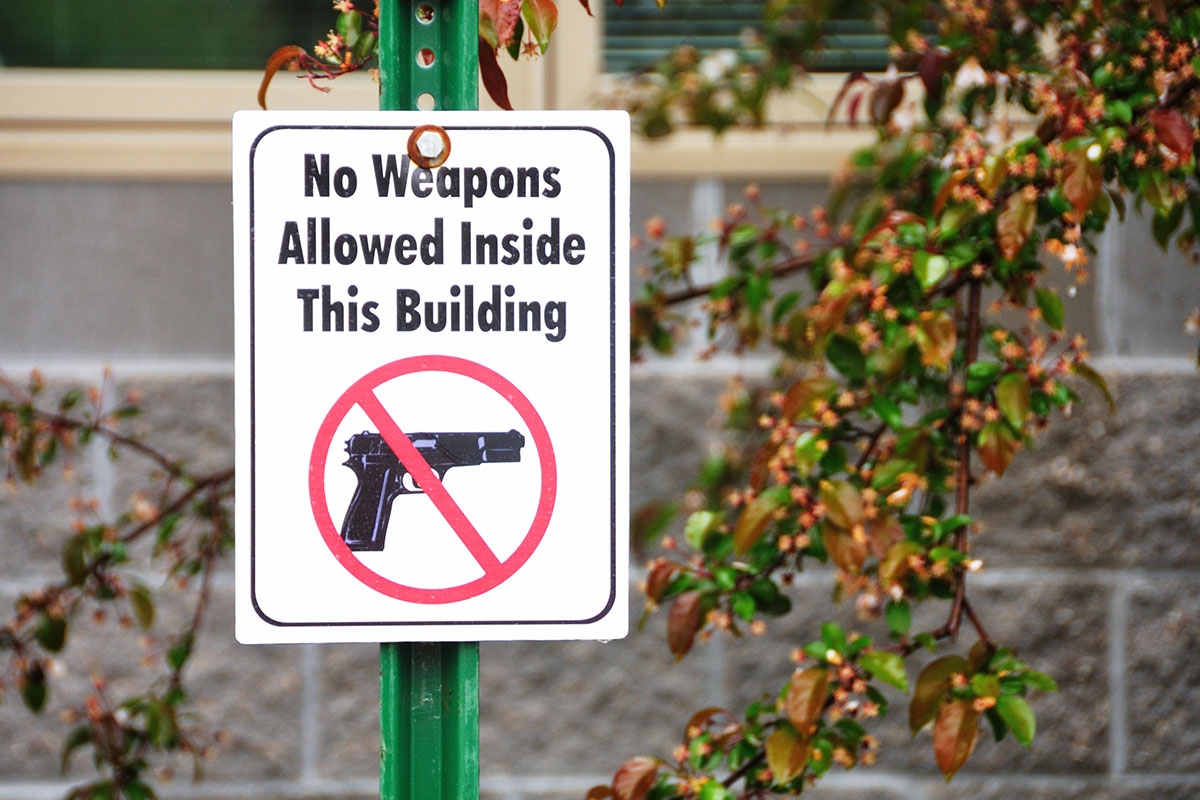In the big world of Columbia University, there is no particular reason, at least at first glance, why Sonali Rajan and Charles Branas would know one another.
But Rajan, Associate Professor of Health Education at Teachers College, and Branas, Gelman Professor and Chair of Epidemiology at the Columbia University Mailman School of Public Health, share a common focus on reducing gun violence, a national epidemic that, this year alone, has killed nearly 32,000 Americans and injures well over 100,000 each year. Branas and Rajan have co-authored several publications on topics such as the risks of arming school teachers and missed opportunities to better support youth who have been exposed to gun violence. Their collaborations have convinced them that, as they put it, “the more people we have working on the issue of gun violence, the more likely we will be able to develop impactful solutions.”
[Read about a recent study by Rajan, Branas, and fellow Columbia colleagues on what they deem a failure to adequately classify youth exposure to gun violence. Read “A Right Worth Fighting For,” an opinion piece written by Rajan in the wake of multiple mass shootings last summer.]

STRENGTH IN NUMBERS Clockwise from left: Sonali Rajan, TC Associate Professor of Health Education; Charles Branas, Gelman Professor and Chair of Epidemiology at the Columbia University Mailman School of Public Health; Ted Alcorn, Associate in Epidemiology at Mailman; and Louis Klarevas, Research Professor at TC. The four co-founded SURGE on the premise that preventing gun violence requires perspectives from a range of fields. (Photos: TC Archives)
Branas and Rajan, along with two of their long-time collaborators Louis Klarevas, Research Professor at Teachers College and author of Rampage Nation: Securing America from Mass Shootings, and Ted Alcorn, a lecturer at the Columbia Mailman School who teaches a course called “Gun Violence in the U.S.: Evidence and Action,” put that idea into action in January when they held a meeting for researchers from across the Columbia universe with an interest in gun violence research and prevention. They knew they’d hit on a winning idea when over 30 scholars from across the university showed up. The result, launched officially this past summer, is the Columbia Scientific Union for the Reduction of Gun Violence (SURGE), which includes faculty, students, and alumni from TC, Mailman, Barnard College, Columbia’s Vagelos College of Physicians & Surgeons, and the Columbia Schools of Law and Social Work. [Read about a talk given at TC in 2017 by Louis Klarevas. Read about a 2019 study led by Klarevas on the effectiveness of banning large capacity magazines (LCMs) — detachable feeding devices that hold more than 10 bullets.]
SURGE will co-sponsor a Columbia campus-wide event beginning on October 5th: Gun Violence Action Week, a series of virtual workshops, panel discussions and town halls on gun politics, intimate partner violence, suicide prevention and other relevant topics. This event has been organized and led by SURGE-affiliated students and alumni [Visit the SURGE website for more on Gun Violence Action Week.]
Rajan and Branas emphasize that SURGE is a scientific entity that will focus on generating new evidence, interdisciplinary collaborations, and creative ideas that, they hope, go beyond traditional solutions to gun violence.
When you ask people what comes to mind when they think about the prevention of gun violence, they tend to think of reactive solutions. But part of drawing on the public health mindset is to actively prevent gun violence well before it happens and to imagine patterns, identify interventions, and allocate resources that can bring about lasting change.
— Charles Branas, Gelman Professor and Chair of Epidemiology at Columbia's Mailman School of Public Health
“When you ask people what comes to mind when they think about the prevention of gun violence, they tend to think of reactive solutions,” says Branas. “But part of drawing on the public health mindset is to actively prevent gun violence well before it happens and to imagine patterns, identify interventions, and allocate resources that can bring about lasting change.”
With colleagues Paul Reeping and Kara Rudolph at the Columbia Mailman School, Branas recently wrote a piece for the Journal of the American Medical Association titled “Beyond Gun Laws,” which speaks to the need to search for solutions that don’t rely on laws or law enforcement to prevent gun violence.
One example of the translational work being done by SURGE faculty is the launch of (Re)Search for Solutions, a podcast series produced by Rajan in conjunction with Lalitha Vasudevan, Professor of Technology & Education and fellow SURGE faculty member, and the TC Media & Social Change Lab (MASCLab), which Vasudevan directs. The podcasts aim to “disrupt the singular and oftentimes narrow discourse” about solutions to gun violence. Episode One, for example, draws on Branas’s research and transports listeners to a Philadelphia neighborhood where community members have cleaned and greened empty lots that once harbored criminal activity. Episode Three explores the powerful work of SURGE faculty member Katherine Keyes at Columbia Mailman School on the prevention of gun-inflicted suicide.
The SURGE website features the many gun violence-related courses taught across Columbia’s schools, which Branas and Rajan credit as an impetus for making SURGE a reality. One of those classes, “Social Policy and Prevention,” taught by TC Professor of Health Education John Allegrante, uses gun violence as an example of how social, economic, and historical influences shape U.S. health policies, and, by extension, health outcomes.
Other courses include “Gun Policy in the U.S.,” taught by Matthew Lacombe, Assistant Professor of Political Science at Barnard, and a “Seminar in Social and Legal Regulation of Firearms,” taught by Columbia School of Law Professor Jeffrey Fagan.
SURGE is planning additional seminars and symposia in the coming months. Meanwhile, SURGE joined with other higher education institutions earlier this year in successfully lobbying the U.S. Centers for Disease Control & Prevention and the National Institutes of Health to set aside $25 million for the study of gun violence as a public health crisis, with more federal funding expected in the coming year. And SURGE faculty are engaged with students from across the university on a range of research, advocacy, and practice efforts.
“We are looking to train the next generation of scholars in this field, because we are now in a situation where we need to basically recover from a ‘lost generation’ of firearms research due to decades of intimidation and obstruction of legitimate science to prevent gun injuries and deaths,” Branas says. [Read a study co-authored by Branas, Priorities in Recovering From a Lost Generation of Firearms Research, published in The American Journal of Public Health in 2018.]
Ultimately, Branas and Rajan say, SURGE is an essential model for initiatives to address critical social issues such as America’s gun crisis because it represents multiple voices and viewpoints.
The prevention of gun violence is so complex and will require consistent, focused efforts. The innovative and diverse researchers, students, and alumni who comprise SURGE so beautifully embody the notion of ‘the sum of the parts is greater than the whole.’
— Sonali Rajan, Associate Professor of Health Education, Teachers College
“The prevention of gun violence is so complex and will require consistent, focused efforts,” Rajan says. “The innovative and diverse researchers, students, and alumni who comprise SURGE so beautifully embody the notion of ‘the sum of the parts is greater than the whole.’ To bring us all together is a very powerful thing. And to have the support of Columbia University adds enormous value to the mission.”
